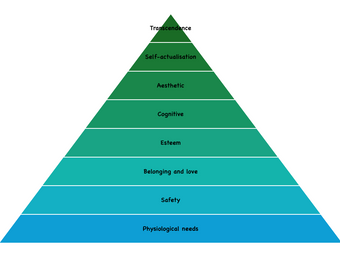This initiative gives guidance for caregivers and anyone who wants to enable kids to flourish on a flourishing planet.
The site is under construction and released as a beta for you who want to share what you want to see on the site. If you have ideas, please do get in touch!
Together we enabled the next generations to flourish


WHAT | FRAMEWORK OVERVIEW
Understanding & prioritising actions
To support transformative change and flourishing lives sustainable at global scale, it is crucial to understand the actual impacts of different actions, what fundamental shifts are needed and how to prioritise. Here is a three-stage framework to do just that, as well as some of the scientific research it is based on.
From lowest to highest impact
Reduce harm
by 'doing things right'
Increase mental growth
to 'do the right things'
Put solutions at scale
by contributing to society and inspiring others
While the "HOW-section" has done much of the work to simplify for caregivers by showing examples of solutions that address each level, the framework here is provided for you to be able to identify and assess the impact potential of solutions by yourself. The levels in the framework describe different kinds and degrees of potential impact of different actions - not the order in which actions should be taken. For global sustainability and kids to not only sustain but flourish, 1.0 Footprint should be understood as the lowest level of impact focusing on reducing negative impacts to sustain. 2.0 Mindprint, on the other hand, takes actions to a whole new level by focusing on fundamental shifts in mindsets and behaviours needed to drive transformative change and flourish. 3.0 Blueprint, ultimately, has the highest impact potential focusing on putting those solutions at scale by inspiring change in society. Sustainability recommendations typically start (and end) with how individuals and organisations can reduce their footprints. Since science has shown that current incremental ways of reducing footprints are not enough, this framework suggests that for any real change to happen, fundamental shifts in mindsets and behaviours are needed. Therefore, 2.0 Mindprint is a fundamental starting point for kids to be able to flourish and subsequently drive meaningful change at the footprint and blueprint levels.
Fundamental mindshift from merely doing things right to doing the right things
Prioritisation of actions
WHAT
Framework overview
From merely 'doing things right' to 'doing the right things' first
This three-step-framework is currently being developed as a tool to help caregivers, schools, companies and other relevant stakeholders, understand and prioritise actions to move beyond conventional sustainability and identify alternative ways that can enable kids to flourish. While the "HOW-section" has already done much of the work to simplify for caregivers by showing examples of solutions that address step 1 and 2 shown below, the framework here is provided for you to be able to identify and assess the impact potential of solutions by yourself.
This three-step framework is currently being developed as a high-level tool to help caregivers, schools, companies and other relevant stakeholders understand and prioritise actions to move beyond conventional sustainability and identify alternative ways to enable kids to flourish.
While the 'HOW' section has already done much of the work to simplify for caregivers by showing examples of solutions that address step 1 and 2 shown below, the framework has been developed for you to be able to identify and assess the impact potential of solutions by yourself.
Sustainability recommendations typically start (and end) with how individuals and organisations can reduce their footprints ('doing things right'). Since science shows current ways of reducing footprints are not enough, real change requires fundamental shifts in mindsets and behaviours to 'do the right things' first. Based on this, Mindprint is the starting point to take actions to a whole new level.
Only after having a solid foundation and understanding of the real needs, values and lifestyles that can enable kids to flourish, it is possible to drive meaningful change at the footprint level, doing the right things in the right way.
Blueprint, ultimately, has the highest impact potential, focusing on putting the solutions identified in previous steps at scale by inspiring others and driving change in society.
This framework and the solutions presented on this site are based on a cross-cutting review of the scientific literature across fields such as climate change, positive psychology, business economics and innovation. See selection of important references further down on this page.

WHAT | THE SCIENCE BEHIND
Using the latest most ambitious climate science as a minimum baseline
To help ensure that the solutions and actions discussed on this site are in line with what is needed to achieve global climate goals, the latest most ambitious climate science is used as a minimum baseline. Explore the key principles of the most ambitious pathway and how this initiative aligns with them.


WHAT | REFERENCES
Key references
This framework and initiative are based on a cross-cutting review of the scientific literature across fields such as climate change, positive psychology and innovation, complemented by relevant UN conventions and insights from research-based practice. A selection of some of the most relevant references for this initiative are presented below.
Discover more


WHAT | THE SCIENCE BEHIND
Using the latest most ambitious climate science as a minimum baseline

To help ensure that the solutions and actions discussed on this site are in line with what is needed to achieve global climate goals, the latest most ambitious climate science is used as a minimum baseline. Explore the key principles of the most ambitious pathway and how this initiative aligns with them.







































